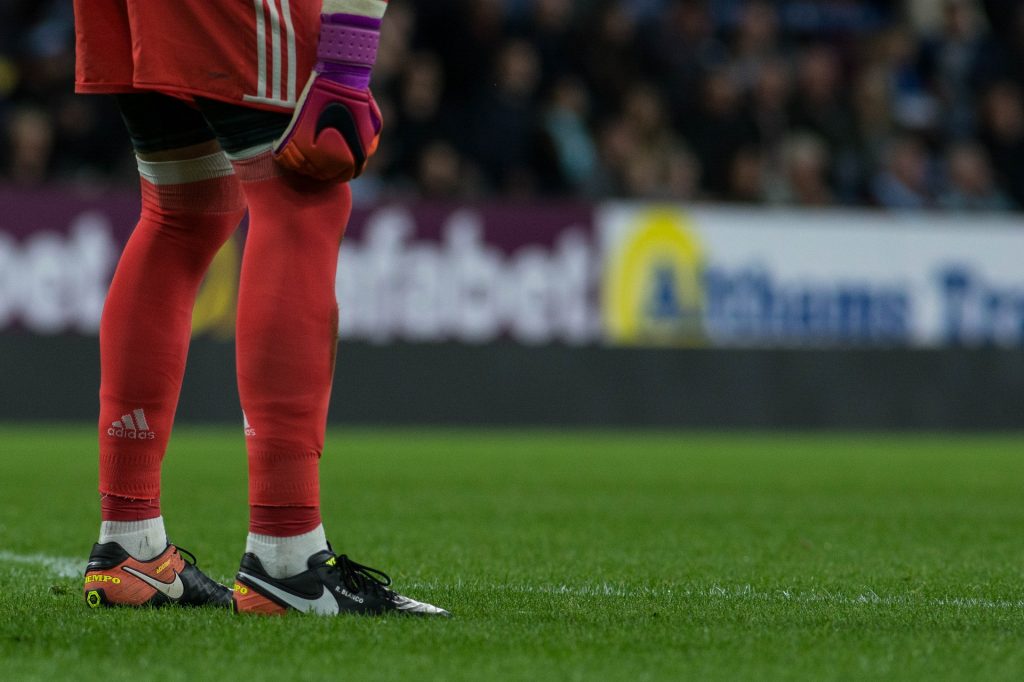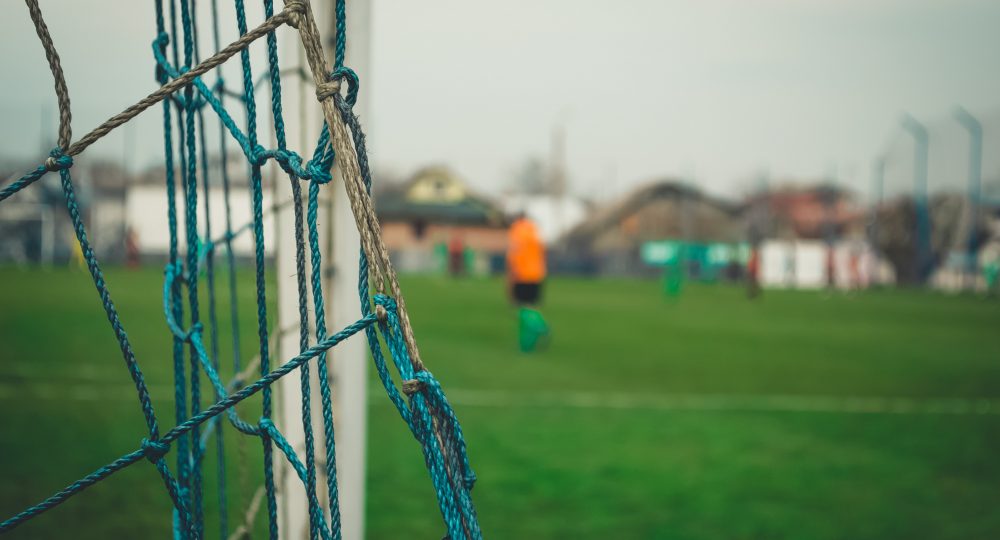The Golden Glove has become an increasingly sought after prize in football.
There was a time when going in goal was a sign of social inadequacy: the least popular position reserved for the playground’s least popular person; but that’s all changed now.
Goalkeepers like Peter Schmeichel and David Seaman made a name for themselves in terms of their shot-stopping ability while anything else was seen as a bonus.
Now, however, ‘keepers who are simply good “shot-stoppers” are fast becoming as rare as full-backs who only tackle and strikers who only score tap-ins.
Rather like quarterbacks in the NFL are passing more than ever, football has seen certain positions revolutionised in recent years and none more so than the ‘keeper.
Barely 10 years ago the net-minder was a far cry from the all-encompassing, ball-playing, custodians we almost take for granted today.
Of course, shot-stopping, punching and collecting remain as important ever, but new dynamics like distribution and playing the ball on the ground are all a must it would appear.
And without some, if not all, of these attributes, a ‘keeper can quickly become seen by some fans as a yesterday’s man, an outdated version of what we all yearn for – like an old phone or past-it pair of trainers.
Take David De Gea at Manchester United. Despite a shaky start to his career, he would go on to be considered the greatest stopper in Europe due to his ability to keep the ball out of the net.
But such is the speed of this evolution, the Spaniard is now regarded as one of the old school – simply because he’s not known for his ball-playing ability.
Game Changers
To suggest that David De Gea is responsible for Manchester United’s recent lean spell in the Premier League would be unfair. You don’t become a bad goalkeeper overnight.
However, the arrival of a number of high-profile ‘keepers, and the influence they seem to have had on their side, only goes to illustrate how quickly the transformation appears to have taken place.
Few footballers can claim to have revolutionised their position or to have brought about a new way of understanding the game than Bayern Munich’s Manuel Neuer.
Having joined Bayern from Schalke in 2011, he has redefined the role of the number one: with the 31-year-old almost single-handedly turning the goalkeeper into an outfield player as much as a stopper.
The addition to the Liverpool side of Allison Becker in 2019, along with the arrival of Virgil van Dijk, revitalised the whole side and turned what looked like perennial challengers into champions.
The same could also be said for the impact Ederson has had on Manchester City who, having been brought in to replace a goalkeeper who was considered to be the best ball player around, Claudio Bravo, has taken the role to a different level.
Such additions have allowed their team the ability to play a high line and press the opposition in their own half with the added confidence of knowing that their ‘keeper is controlling the space behind the centre-backs.

Top Stoppers
As the position of the goalkeeper has changed, so has our desire to find out more about the influence they have on a team and there are plenty of statistics which allow us to do this.
Take Liverpool’s Allison Becker. In his first season at Anfield, a campaign that saw the Reds miss out on the title by just a point, he kept 21 clean sheets in 38 Premier League games making 58 saves in the process.
But he also made 17 sweeper clearances, and 212 throw outs to teammates with an average of 28.32 passes per game and 183 long balls.
Compare that to Loris Karius the season before, who made just 521 passes and 106 throw outs in a season which saw him keep 10 clean sheets as Liverpool finished fourth in the table – 25 points off Manchester City.
That same season, the newly arrived Brazilian ‘keeper, Ederson, kept 16 clean sheets with 40 sweeper clearances, 928 passes and 147 accurate long balls.
Since then little has changed, with the Manchester City, Liverpool and Manchester United ‘keepers often dominating the charts – finishing first, third and fifth in the 2019/20 clean sheets standings respectively.
A few other outstanding individual performances are also worthy of a mention with Newcastle United’s Martin Dubravka recording 140 saves in 3420 minutes of action last season while Norwich City’s Tim Krul made 132 in the same number of minutes played.
How this Impacts You
Measuring a goalkeeper’s importance is a tricky task. Some weighting is clearly given to the number of saves they make, but those who represent teams fighting against relegation are usually busier than those in a title race.
Clean sheets are also far from a perfect metric given that the calibre of finishing in England‘s top tier can often see a goalkeeper’s record muddied through no real fault of their own.
Needless to say, with a greater emphasis on statistics, the picture can be somewhat distorted when looking for a golden glove contender.
The award is given out based on the number of clean sheets kept in a season and not a goalkeeper’s ability to set-up counter-attacks or control the tempo of the game.
And because of this, a number of factors must be considered rather than purely their ability to keep the ball out of the net.
For example, the strength of the defence that is playing in front of a goalie will have a huge say in the amount of work they are expected to carry out during a game.
In the 2019/20 Golden Glove race, which was eventually won by Manchester City’s Edison with 16 shutouts, Burnley’s Nick Pope came a close second on 15.
This is despite the fact that Sean Dyche’s side conceded 50 goals in the Premier League that season.
It’s also worth noting that Tim Pope was forced into 120 saves that campaign, while Ederson was forced into action just 68 times.
Meanwhile, in the same season, Manchester United’s David De Gea came third with 13 clean sheets, not bad for a player regarded as past his best and somewhat outdated in the modern game.
Yes, statistics might not be everyone’s cup of tea, though they are a great resource for punters who want to be more informed before placing a bet.
But while figures can certainly highlight or help make an informed decision, they can also totally overlook another.
That’s why it’s important to look at the whole picture and not just concentrate on one area which is particularly popular or in vogue at that moment in time.
Knowing where to start with your research can be challenging. Check out our in-depth guide on how to get going!








